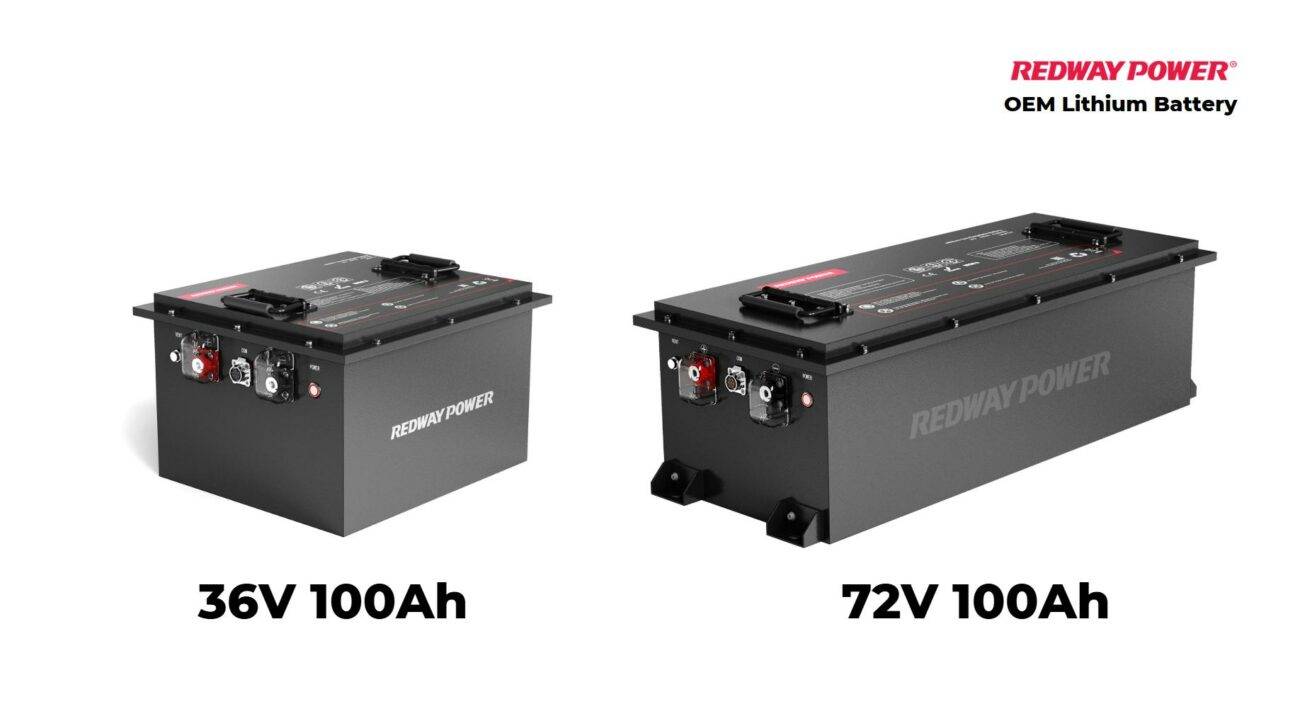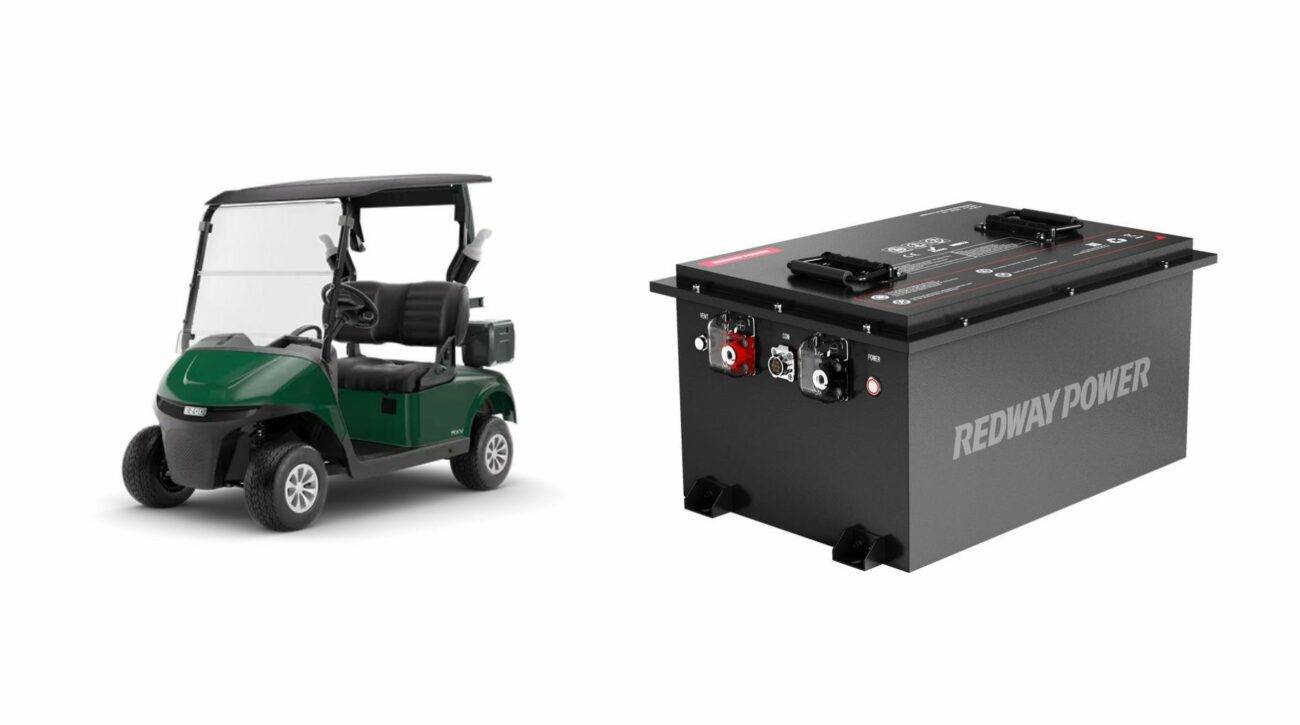- Forklift Lithium Battery
-
48V
- 48V 210Ah
- 48V 300Ah
- 48V 420Ah (949 x 349 x 569 mm)
- 48V 420Ah (950 x 421 x 450 mm)
- 48V 456Ah
- 48V 460Ah (830 x 630 x 590 mm)
- 48V 460Ah (950 x 421 x 450 mm)
- 48V 460Ah (800 x 630 x 600 mm)
- 48V 460Ah (820 x 660 x 470 mm)
- 48V 500Ah
- 48V 560Ah (810 x 630 x 600 mm)
- 48V 560Ah (950 x 592 x 450 mm)
- 48V 600Ah
- 48V 630Ah
-
48V
- Lithium Golf Cart Battery
- 12V Lithium Battery
12V 150Ah Lithium RV Battery
Bluetooth App | BCI Group 31
LiFePO4 Lithium
Discharge Temperature -20°C ~ 65°C
Fast Charger 14.6V 50A
Solar MPPT Charging - 24V Lithium Battery
- 36V Lithium Battery
- 48V Lithium Battery
-
48V LiFePO4 Battery
- 48V 50Ah
- 48V 50Ah (for Golf Carts)
- 48V 60Ah (8D)
- 48V 100Ah (8D)
- 48V 100Ah
- 48V 100Ah (Discharge 100A for Golf Carts)
- 48V 100Ah (Discharge 150A for Golf Carts)
- 48V 100Ah (Discharge 200A for Golf Carts)
- 48V 150Ah (for Golf Carts)
- 48V 160Ah (Discharge 100A for Golf Carts)
- 48V 160Ah (Discharge 160A for Golf Carts)
-
48V LiFePO4 Battery
- 60V Lithium Battery
-
60V LiFePO4 Battery
- 60V 20Ah
- 60V 30Ah
- 60V 50Ah
- 60V 50Ah (Small Size / Side Terminal)
- 60V 100Ah (for Electric Motocycle, Electric Scooter, LSV, AGV)
- 60V 100Ah (for Forklift, AGV, Electric Scooter, Sweeper)
- 60V 150Ah (E-Motocycle / E-Scooter / E-Tricycle / Tour LSV)
- 60V 200Ah (for Forklift, AGV, Electric Scooter, Sweeper)
-
60V LiFePO4 Battery
- 72V~96V Lithium Battery
- Rack-mounted Lithium Battery
- E-Bike Battery
- All-in-One Home-ESS
- Wall-mount Battery ESS
-
Home-ESS Lithium Battery PowerWall
- 24V 100Ah 2.4kWh PW24100-S PowerWall
- 48V 50Ah 2.4kWh PW4850-S PowerWall
- 48V 50Ah 2.56kWh PW5150-S PowerWall
- 48V 100Ah 5.12kWh PW51100-F PowerWall (IP65)
- 48V 100Ah 5.12kWh PW51100-S PowerWall
- 48V 100Ah 5.12kWh PW51100-H PowerWall
- 48V 200Ah 10kWh PW51200-H PowerWall
- 48V 300Ah 15kWh PW51300-H PowerWall
PowerWall 51.2V 100Ah LiFePO4 Lithium Battery
Highly popular in Asia and Eastern Europe.
CE Certification | Home-ESS -
Home-ESS Lithium Battery PowerWall
- Portable Power Stations
Are All 12V Car Batteries The Same?

Not all 12V car batteries are the same; they come in various types, each designed for specific applications, performance characteristics, and maintenance needs. Understanding these differences is crucial for selecting the right battery for your vehicle’s requirements.
What are the types of 12V batteries?
There are several types of 12V batteries, including:
- Flooded Lead-Acid Batteries: The most common type, requiring regular maintenance.
- Sealed Lead-Acid Batteries (VRLA): Includes AGM and Gel types, which are maintenance-free.
- Lithium-Ion Batteries: Increasingly popular due to their lightweight and efficiency.
Chart Title: Types of 12V Batteries
| Battery Type | Maintenance Level | Typical Lifespan |
|---|---|---|
| Flooded Lead-Acid | High | 3 to 5 years |
| Sealed Lead-Acid (AGM/Gel) | Low | 4 to 7 years |
| Lithium-Ion | Very Low | Up to 10 years |
How do lithium-ion and lead-acid batteries differ?
Lithium-ion and lead-acid batteries differ significantly:
- Weight: Lithium-ion is lighter, making it suitable for applications where weight is critical.
- Efficiency: Lithium-ion offers higher energy density and faster charging times.
- Depth of Discharge: Lithium-ion can be discharged deeper without damage, unlike lead-acid, which should not be discharged below 50% capacity.
What are the advantages of lithium-ion batteries over lead-acid?
Lithium-ion batteries provide several advantages:
- Longer Lifespan: They typically last longer than lead-acid counterparts.
- Higher Efficiency: Better energy retention and faster charging capabilities.
- Less Maintenance: No need to check water levels or equalize charges.
How do different battery types compare in performance and lifespan?
Performance varies across battery types:
- Flooded Lead-Acid: Reliable but requires regular maintenance; lifespan around 3 to 5 years.
- AGM Batteries: More durable with lower self-discharge; lifespan around 4 to 7 years.
- Lithium-Ion Batteries: Best performance with minimal maintenance; lifespan can reach up to 10 years.
What maintenance is required for various 12V batteries?
Maintenance requirements vary:
- Flooded Lead-Acid Batteries: Regularly check electrolyte levels and clean terminals.
- AGM/Gel Batteries: Minimal maintenance; check connections periodically.
- Lithium-Ion Batteries: Ensure proper charging practices; no other maintenance needed.
Can all 12V batteries be used interchangeably in vehicles?
Not all 12V batteries can be used interchangeably due to differences in size, terminal configuration, and power requirements. Always consult your vehicle’s specifications before replacing a battery.
How does depth of discharge affect battery lifespan?
Depth of discharge (DoD) significantly impacts lifespan:
- For lead-acid, discharging below 50% can shorten life considerably.
- Lithium-ion can handle deeper discharges (up to 80%) without substantial degradation.
Are there specific safety precautions when handling different types of batteries?
Yes, safety precautions include:
- Wearing gloves and goggles when handling flooded lead-acid batteries due to acid exposure risks.
- Ensuring proper ventilation when charging any type of battery.
- Storing lithium-ion batteries at moderate temperatures to prevent overheating.
Expert Views“Choosing the right type of battery based on your specific needs can greatly enhance performance and longevity,” states an automotive expert specializing in energy storage solutions. “Understanding the differences between these technologies helps users make informed decisions that align with their vehicle’s requirements.”FAQ Section
- What type of battery is best for my vehicle?
It depends on your vehicle’s requirements; consult your manual or a professional. - How often should I replace my car’s battery?
Generally every 3 to 5 years, but monitor performance closely. - Can I use a lithium-ion battery in place of a lead-acid one?
Yes, but ensure compatibility with your vehicle’s systems. - What should I do if my car won’t start?
Check connections first, then test or replace your battery if necessary. - Are there any environmental considerations with old lead-acid batteries?
Yes, they must be recycled properly due to hazardous materials inside.






















